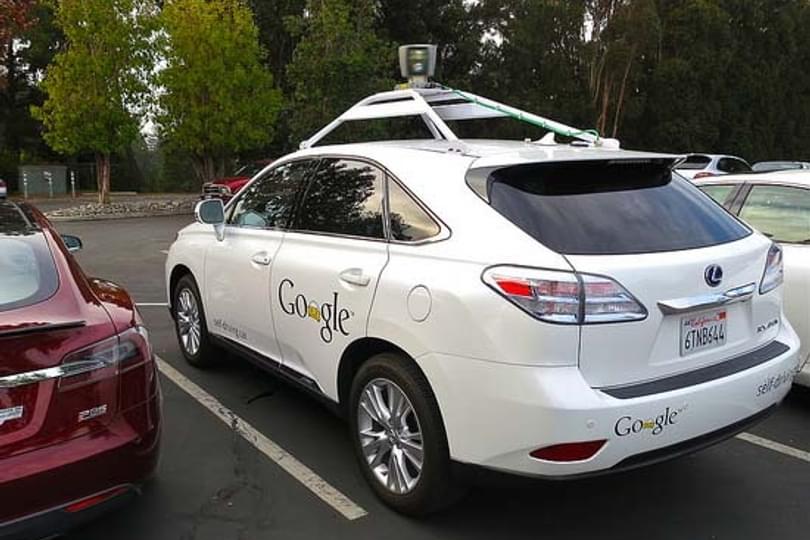
Owen Cotton-Barratt and Sebastian Farquhar of the Global Priorities Project, hosted by the Future of Humanity Institute, Oxford Martin School, take a look at what self-driving cars could mean for the UK.
Self-driving cars are coming. The Department for Transport has given the go-ahead for the cars be tested legally on any roads in Britain, so long as there is a human driver in the vehicle who can assume control and would take responsibility for any accident. Google’s prototypes have been driving unaided in pre-mapped environments. The firm entered discussions last month with major car manufacturers about getting production lines rolling within the next two to five years.
Pundits gush about the potential benefits, but the effect of driverless cars helping us build a legislative framework for future automation technologies, though often seen as a challenge, may be a huge opportunity.
Many of the benefits of self-driving cars are well known. First, car crashes kill a lot of people. 1,700 people die in traffic accidents each year in Britain and worldwide the total is 1.2 million¹, almost as many as die from HIV/AIDS. These are overwhelmingly caused by human error, and it seems likely that the technology could soon become reliable enough to eliminate a large proportion of these.
Second, people spend a lot of time driving. Some of this is enjoyed, but much is merely endured. Freeing people to use their travel time in work, study or leisure would be a substantial boost to the economy and to wellbeing. Moreover, the effects on congestion, emissions and accessibility could be substantial.
But there is another big reason to push ahead adopting driverless cars that gets neglected. We are living in a world of increasing automation. We need to adapt to that: technically, legally, and socially. Self-driving cars seem like a big step today, but we can expect much greater automation in our lifetimes, for example in medical diagnosis. A recent paper estimates that around half of current jobs in developed economies may be automated away in the coming decades.
We have a lot to learn. How can we produce systems which are robust to unknown errors in their code? Which are resistant to any remote sabotage? How we can structure our laws so that liability is clear when things fail? How can we structure the incentives so that it is in everyone’s interest to prevent them from failing? What new areas of employment can we create to take advantage of this liberation of human time and expertise?
All of these will take time, and will almost certainly not be done right from the beginning. The longer we wait on grappling with the practical issues that driverless cars present, the longer before we get an opportunity for our society to adapt to the next great force to shape humanity. That will make us less prepared for future increases in automation, which may be much more dramatic and essential to get right. If this were the last time we had to face this challenge, it might make sense to take things slowly. But because there is so much yet to come, the societal knowledge we gain from experimentation is very valuable.
Slowing things down now might make it easier for us in the short term. It is likely, however, that it will make it harder for society to adapt to a more sudden and alarming change in the future, when we can no longer hold back the rising tide of technology.
Endnotes:
1 The UK figure, from the Department for Transport, is from their 2013 annual report as 2014 data have not yet been finalised. The world-wide figure, provided by the World Health Organisation, is for the year 2010. It is likely that this represents a significant underestimate as car ownership in less economically developed nations, which often have poor road safety, has risen in that time.
This opinion piece reflects the views of the author, and does not necessarily reflect the position of the Oxford Martin School or the University of Oxford. Any errors or omissions are those of the author.
